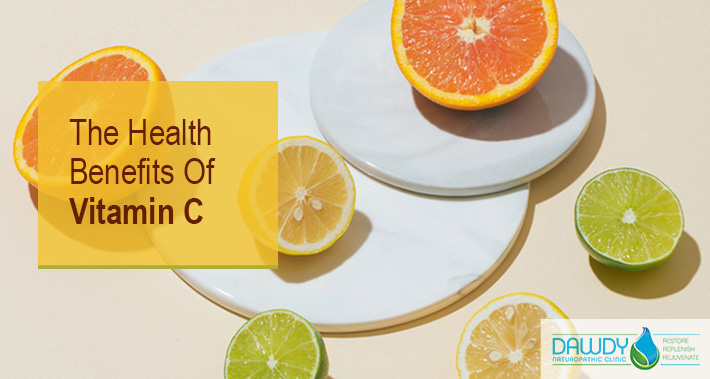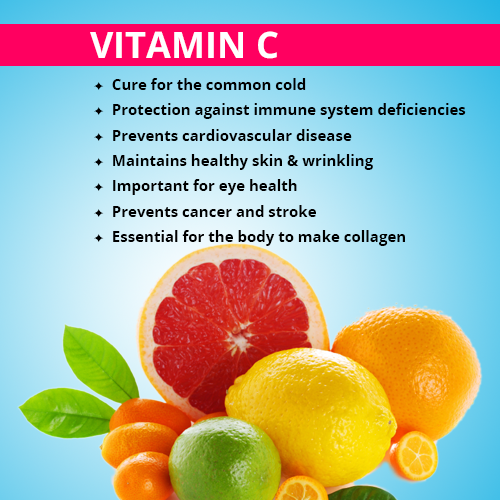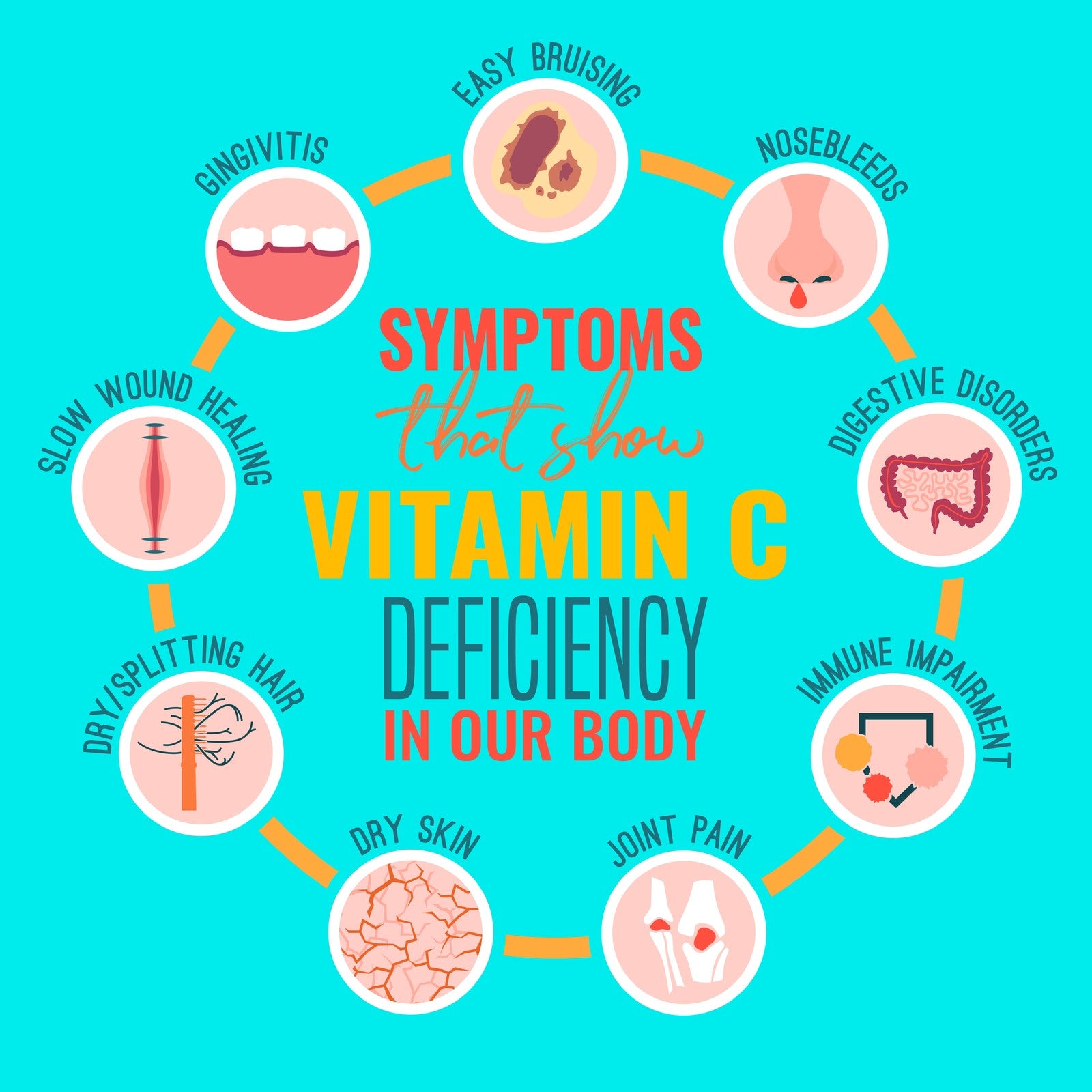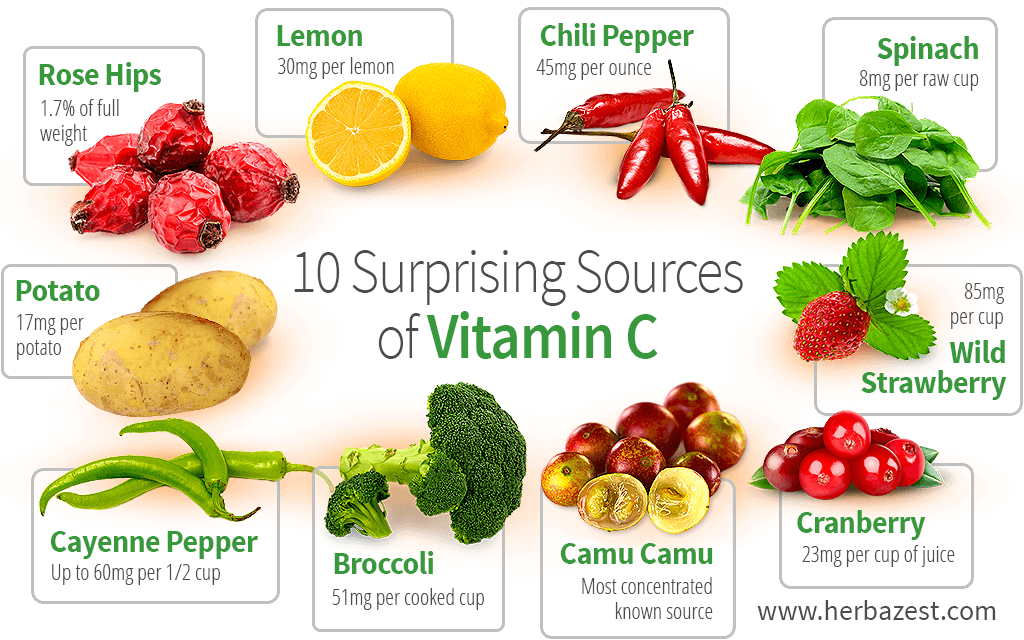Vitamin C: The Immunity Booster and Beyond
In our quest for optimal health, a strong immune system plays a vital role. One nutrient that stands out for its immune-boosting properties is Vitamin C. However, Vitamin C offers far more benefits than just immunity. In this blog post, we'll explore the fascinating world of Vitamin C, delving into its various roles, sources, and the incredible benefits it brings to our overall well-being.
What is Vitamin C?
Vitamin C, also known as ascorbic acid, is a water-soluble vitamin that belongs to the family of essential nutrients. Unlike some animals, our bodies cannot produce Vitamin C, so we rely on dietary sources to meet our requirements. This makes it crucial to understand the importance of incorporating Vitamin C-rich foods into our daily diet.
The Health Benefits of Vitamin C
Vitamin C is widely known for its role in supporting the immune system. It helps stimulate the production of white blood cells, which are essential for fighting off infections and protecting the body against harmful pathogens. Research suggests that Vitamin C may help reduce the duration and severity of common cold symptoms and enhance immune function, particularly in individuals who engage in intense physical activity or are under high levels of stress.
Antioxidant Activity
As a powerful antioxidant, Vitamin C plays a crucial role in neutralizing free radicals, unstable molecules that can cause damage to cells and contribute to various chronic diseases. By scavenging these free radicals, Vitamin C helps protect against oxidative stress and inflammation. It also regenerates other antioxidants in the body, such as Vitamin E, enhancing their effectiveness.
Collagen Synthesis
Vitamin C is essential for the synthesis of collagen, a protein that provides structure and support to the skin, bones, tendons, and blood vessels. It plays a vital role in wound healing, tissue repair, and the maintenance of healthy skin. Research suggests that Vitamin C supplementation may improve the skin's appearance, promote wound healing, and reduce the risk of skin aging.
Heart Health
Studies have found a link between higher Vitamin C intake and a reduced risk of heart disease. Vitamin C helps improve endothelial function, which is important for maintaining healthy blood vessels and proper blood flow. It also helps lower blood pressure, reduce inflammation, and prevent the oxidation of LDL cholesterol, which can contribute to the development of atherosclerosis.
Iron Absorption
Vitamin C enhances the absorption of non-heme iron, the form of iron found in plant-based foods. By converting ferric iron into a more absorbable ferrous form, Vitamin C improves the body's ability to utilize iron from plant sources. This is particularly beneficial for individuals following vegetarian or vegan diets, as plant-based sources of iron are less readily absorbed than heme iron from animal sources.
Brain Health
Emerging research suggests that Vitamin C may have a protective role in brain health and cognitive function. It has been associated with a reduced risk of cognitive decline and neurodegenerative diseases such as Alzheimer's disease. Vitamin C's antioxidant properties help combat oxidative stress and inflammation in the brain, promoting healthy aging and cognitive function.
Eye Health
Vitamin C, along with other antioxidants, plays a role in protecting eye health and preventing age-related macular degeneration (AMD) and cataracts. Studies have shown that individuals with higher Vitamin C levels have a reduced risk of developing AMD, a leading cause of vision loss in older adults. Vitamin C's antioxidant properties help neutralize free radicals in the eyes, protecting against oxidative damage.
Research studies have consistently highlighted the numerous health benefits of Vitamin C. However, it's important to note that these benefits are typically observed as part of a balanced diet and overall healthy lifestyle. While supplementation may be necessary for certain individuals with deficiencies or specific health conditions, obtaining Vitamin C through a varied diet of fruits, vegetables, and other natural food sources is generally recommended to reap the full spectrum of its benefits.
Effects of Vitamin C Deficiency
A deficiency in vitamin C, also known as scurvy, can have various detrimental effects on the body. Here are some common consequences of vitamin C deficiency:
Weak Immune System: A deficiency can weaken the immune system, making individuals more susceptible to infections, colds, and flu-like symptoms.
Fatigue and Weakness: Vitamin C is involved in the production of carnitine, a molecule responsible for converting fat into energy. Inadequate vitamin C levels can lead to feelings of fatigue, weakness, and reduced physical endurance.
Impaired Wound Healing: Vitamin C is essential for collagen synthesis, a protein necessary for wound healing and tissue repair. A deficiency can delay the healing process, leading to slower recovery from injuries or surgeries.
Gingivitis and Dental Problems: Insufficient vitamin C can contribute to gum inflammation, known as gingivitis. Prolonged deficiency may lead to bleeding gums, tooth loss, and other oral health issues.
Weakened Connective Tissues: Vitamin C is crucial for maintaining the strength and integrity of connective tissues, such as tendons, ligaments, and blood vessels. Without adequate vitamin C, these tissues can become weak and prone to damage.
Iron Absorption Issues: Vitamin C enhances the absorption of iron from plant-based sources. A deficiency in vitamin C can hinder iron absorption, leading to iron deficiency anemia and its associated symptoms like fatigue and weakness.
Increased Oxidative Stress: Vitamin C is a potent antioxidant that helps neutralize harmful free radicals in the body. A deficiency can result in increased oxidative stress, which has been linked to various chronic diseases and accelerated aging.
Vitamin C is found abundantly in various fruits and vegetables. Including these foods in your diet can help ensure an adequate intake of Vitamin C.
Citrus Fruits
Citrus fruits such as oranges, grapefruits, lemons, and limes are well-known for their high Vitamin C content. Just one medium-sized orange provides around 70-90 mg of Vitamin C, meeting the recommended daily intake for most adults. Other citrus fruits also offer substantial amounts of Vitamin C and can be enjoyed as a snack or added to salads, smoothies, or fresh juices.
Berries
Berries, including strawberries, blueberries, raspberries, and blackberries, are not only delicious but also packed with Vitamin C. These vibrant fruits provide a range of antioxidants, including Vitamin C, which contribute to their health benefits. Incorporate berries into your breakfast, yogurt, or enjoy them as a refreshing snack.
Kiwi
Kiwi fruit is another excellent source of Vitamin C. One medium-sized kiwi contains approximately 70-90 mg of Vitamin C. It also offers dietary fiber and other essential nutrients. Enjoy kiwi on its own, slice it into fruit salads, or use it to add a tangy flavor to smoothies.
Bell Peppers
Bell peppers, especially the red and yellow varieties, are rich in Vitamin C. One medium-sized red bell pepper provides more than double the daily recommended intake of Vitamin C. Bell peppers are versatile and can be added to stir-fries, salads, or stuffed with a delicious filling.
Leafy Green Vegetables
Leafy greens like spinach, kale, and Swiss chard may not be the first foods that come to mind when thinking about Vitamin C, but they do contain notable amounts. While their Vitamin C content may be lower compared to citrus fruits, leafy greens offer a wide range of other vitamins, minerals, and antioxidants that contribute to overall health.
Tropical Fruits
Tropical fruits like pineapple, mango, and papaya are not only delicious but also provide a good amount of Vitamin C. These fruits can be enjoyed fresh, added to fruit salads, or used in smoothies for a tropical twist.
Tomatoes
Tomatoes, both fresh and cooked, are a decent source of Vitamin C. They can be used in various dishes, such as salads, sandwiches, pasta sauces, or roasted as a side dish.
The recommended daily intake of Vitamin C varies depending on age and life stage. For adults, the recommended intake is typically around 75 to 90 milligrams per day. However, certain factors such as pregnancy, smoking, and stress may increase the need for Vitamin C. To meet our requirements, we can incorporate Vitamin C-rich foods into our meals and snacks. Try adding berries to your morning oatmeal or enjoying a colorful salad with bell peppers and citrus fruits.
Vitamin C is a powerhouse nutrient that offers incredible benefits for our health. From strengthening our immune system to supporting collagen synthesis and aiding in wound healing, this vitamin plays a vital role in our well-being. By incorporating Vitamin C-rich foods into our diet, we can harness its remarkable properties and enjoy the many rewards it brings. Remember, a balanced and varied diet is the key to optimal nutrition, so let Vitamin C be a cornerstone of your journey toward a healthier you.












Comments
Post a Comment